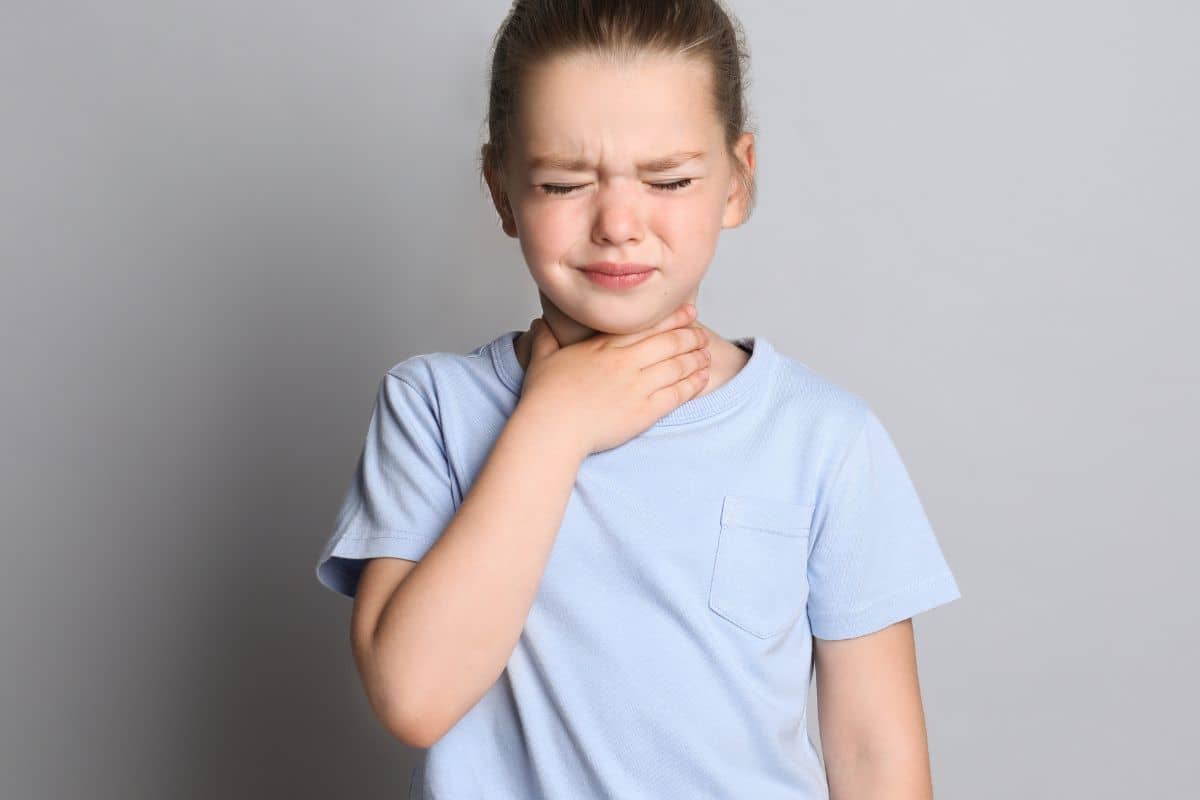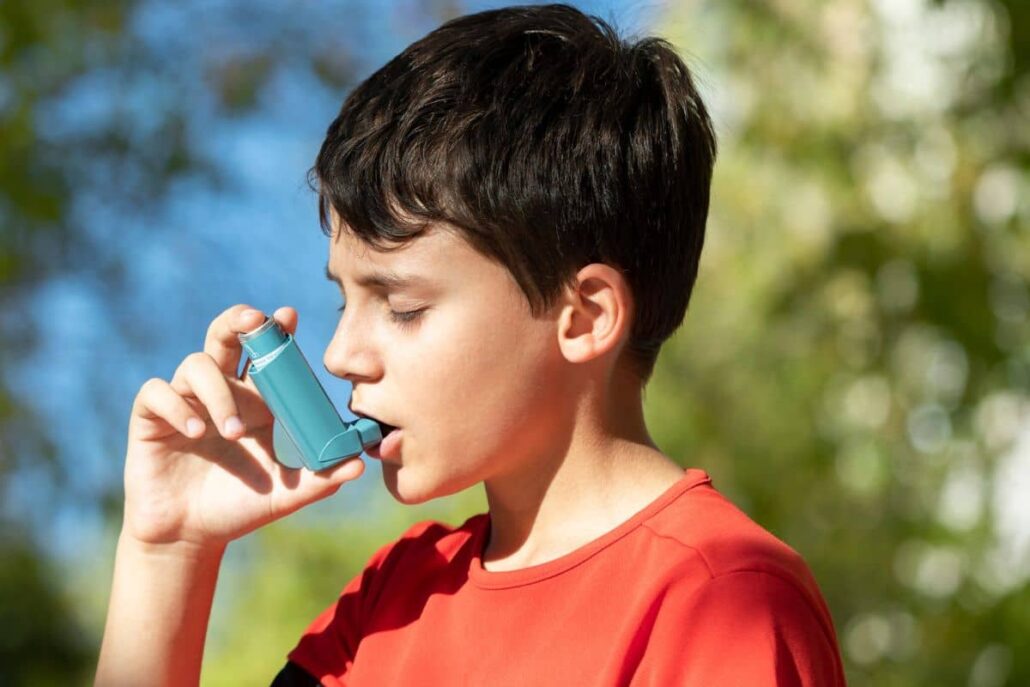Asthma is a prevalent condition among children, causing difficulty in breathing and limiting daily activities. As a chronic respiratory disease, asthma can significantly impact a child’s quality of life if not properly managed. Understanding the causes and triggers of childhood asthma is crucial for prevention and effective treatment. Dr. Becker and the team at Becker ENT & Allergy are committed to helping families identify these triggers and manage asthma effectively.
Asthma not only affects physical health but can also impact a child’s emotional and social well-being. Frequent asthma attacks or symptoms like wheezing may cause anxiety, missed school days, and reduced participation in activities. Learning about asthma causes and prevention can empower parents to create a safer environment for their children.

What You Need To Know about Asthma in Children
- Genetic factors can play a significant role in a child’s risk of developing asthma.
- Environmental allergens, such as dust and mold, are common asthma triggers.
- Secondhand smoke and air pollution can exacerbate asthma symptoms in children.
- Preventive measures, like reducing exposure to triggers, can help to manage asthma.
- Early intervention by a pediatric ENT can help to prevent complications and improve outcomes.
Main Causes and Triggers of Asthma in Children
Asthma in children can be triggered by a variety of factors, both genetic and environmental. Recognizing these triggers is the first step toward effective prevention and management. Addressing each of these triggers in a systematic manner can provide kids with a healthy and asthma-free environment.

1. Genetic Risk Factors
A family history of asthma or other allergic conditions, such as eczema or hay fever, can increase a child’s likelihood of developing asthma. This genetic predisposition influences how the immune system reacts to environmental stimuli, often resulting in inflammation and airway sensitivity. Regular monitoring of children with a family history of asthma can help in early detection and management.
2. Allergens
Allergens such as dust mites, pollen, and mold are among the most common asthma triggers. When inhaled, these substances can irritate the airways and cause an asthma attack. Regular cleaning, the use of HEPA filters, and reducing indoor humidity can help to minimize exposure to allergens. Additionally, parents can take steps like washing bedding frequently and avoiding outdoor activities during high-pollen seasons.
3. Pet Dander
Many kids are sensitive to the proteins found in pet dander, saliva, and urine. These particles can become airborne and trigger asthma symptoms. Families who wish to keep pets can consider hypoallergenic breeds or take extra precautions to minimize dander. Limiting your pets’ access to bedrooms and using air purifiers can help to reduce exposure.
4. Respiratory Infections
Colds, flu, and other respiratory infections can lead to inflammation in the airways, triggering or worsening asthma symptoms. Encouraging proper hygiene, such as frequent handwashing, and getting regular flu vaccinations can help to prevent these infections. Teaching children to avoid touching their faces and maintaining a healthy immune system with a balanced diet also reduces risks.
5. Secondhand Smoke
Exposure to tobacco smoke, even indirectly, is a significant risk factor for asthma in children. Secondhand smoke irritates the airways and can lead to chronic inflammation. Creating a smoke-free environment is essential for protecting children from this harmful trigger. Parents and caregivers should also avoid smoking in shared spaces, including cars and outdoor areas.
6. Weather Changes
Sudden changes in weather, especially cold air, can irritate the airways and aggravate asthma symptoms. Dressing children appropriately for the weather and using scarves to cover their mouths during cold weather can help to reduce this risk. Monitoring local weather forecasts and staying indoors during extreme conditions can also be beneficial.
Are you unsure what’s triggering your child’s asthma?
Becker ENT & Allergy offers advanced testing and personalized treatment plans to help you pinpoint the causes and manage symptoms effectively.
7. Physical Activity
While exercise-induced asthma is common, it should not prohibit physical activity. Proper warm-ups, cool-downs, and using prescribed inhalers before exercise can help kids to remain active without triggering asthma symptoms like shortness of breath. Encouraging sports and activities in controlled environments, such as indoor facilities, can further minimize risks.
8. Strong Odors
Perfumes, cleaning agents, and other strong odors can irritate sensitive airways and lead to asthma attacks. Using unscented or natural cleaning products and avoiding heavily scented items can mitigate this risk. Ventilating rooms during cleaning and using masks when necessary can also provide added protection.
9. Stress and Anxiety
Emotional stress and anxiety can trigger asthma symptoms or worsen existing conditions. Teaching children stress management techniques and ensuring a supportive environment can help minimize this trigger. Activities like deep breathing exercises and yoga can promote relaxation.
10. Air Pollution
Pollutants such as car exhaust, industrial emissions, and indoor pollutants can exacerbate asthma. Limiting outdoor activities on high-pollution days and maintaining good indoor air quality are critical preventive measures. Installing air purifiers and ensuring proper ventilation can further enhance air quality at home.
What You Can Do to Prevent Asthma Symptoms in Your Child
Common asthma symptoms include wheezing, coughing, shortness of breath, and chest tightness. To prevent asthma attacks, reduce exposure to known triggers like tobacco smoke and pet dander. Also ensure proper ventilation in your home and encourage a healthy lifestyle. Parents can also maintain a symptom diary to identify patterns and triggers unique to their child. Keep in mind that the best course of action is to consult with a pediatric ENT specialist who can provide personalized care and management strategies for childhood asthma treatment.
Why Early Intervention Can Prevent Asthma Complications
Untreated childhood asthma can lead to serious complications, including frequent hospitalizations, impaired growth, and long-term lung damage. Early diagnosis and care from a Philadelphia child ENT specialist can help reduce asthma attacks, control symptoms, and improve your child’s overall quality of life. Seeking care from a qualified specialist helps to ensure timely and effective treatment for children with asthma. Pediatric ENT specialists can offer targeted therapies and monitor progress over time to ensure optimal outcomes.

How Becker ENT & Allergy Can Help with Your Asthma Program
Becker ENT & Allergy offers comprehensive care for childhood asthma. Our team of experienced pediatric ENT specialists provides personalized treatment plans, advanced diagnostic tools, and evidence-based therapies to manage asthma effectively. By addressing both the causes and symptoms, we aim to improve your child’s overall health and well-being. From allergy testing to asthma action plans, our practice is equipped to meet your child’s unique needs.
Secure Your Safe Treatment Experience with PennMedicine
Becker ENT & Allergy is your partner in managing pediatric asthma. Find a location near you in New Jersey or Philadelphia and book your visit today!
Why Choose Us for Asthma Treatment & Diagnosis
At Becker ENT & Allergy, we offer the following:
- Expert pediatric ENT specialists with years of experience
- State-of-the-art diagnostic and treatment facilities
- Convenient locations across New Jersey and Philadelphia
- A compassionate and family-centered care approach
- Comprehensive services for asthma and related conditions
- Tailored prevention and asthma action plans for lasting results
Consult with Expert Pediatric ENT Doctors in New Jersey and Philadelphia
Don’t let asthma hold your child back. Schedule a consultation with Dr. Becker and the experienced team at Becker ENT & Allergy to get the care your child deserves. Early intervention can make a world of difference. Contact us today to book an appointment. With our specialized care, your child can breathe easier and enjoy a healthier future.

